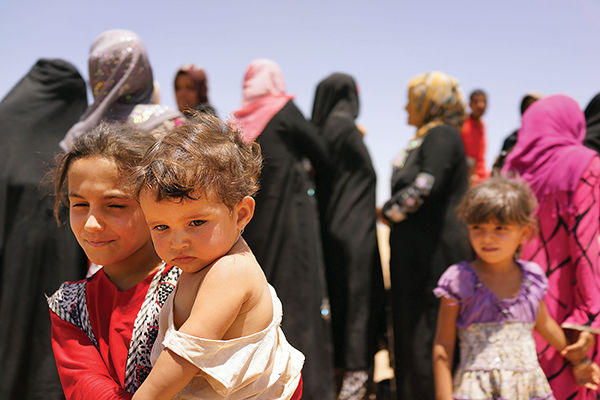As we look around the world during these summer months, we see that there is a lot for us to pray about.
Close to home, of course, we’ve been praying and working to address the humanitarian emergency caused by the thousands of undocumented children crossing our borders from Central America.
In fact, I’m writing from Mexico City, where I’ve come to take part in a meeting of religious and diplomatic leaders from Central America with Governor Brown.
Gov. Brown reached out to me several weeks ago and asked if I would help him to organize a meeting to discuss the present emergency and the broader issues of immigration and development in the region.
Recently, the Vatican and the Mexican government held a similar meeting. These conversations are a very good sign. Because it is essential that governments, business leaders, churches and religious people work together to find solutions to the challenges we face in our societies.
Through these conversations, we are coming to understand that the great migrations we are seeing in the Americas — and in countries all around the world — are part of the daily reality of “globalization.”
We can’t continue to treat immigration as if it is always an “emergency” or a “crisis.”
People are on the move everywhere, and this dynamic fact will only increase. So we need a long-term strategy to address this complicated reality of immigration — as our societies become more and more integrated into the global economy.
We need to examine whether the laws in our countries are fair and whether our borders are secure. But we also need to talk about issues of injustice and inequality in the region. We need to talk about education and economic development; the violence of the drug trade and arms trafficking and human trafficking. We need to find creative ways to promote safe and legal forms of migration.
Also — and I say this as a pastor — we need to examine our hearts. Because immigration, above all, involves issues of our common humanity.
It is more and more clear every day that we need a new commitment to promoting and protecting human dignity and the awareness that we are all brothers and sisters.
This is one of the hard truths that we are learning from our debates over immigration here in the United States.
But it is a hard truth that we also learn from the fighting and bloodshed and suffering that we have been seeing this summer — in Ukraine, in Israel and Palestine, in Syria, and throughout the Middle East and parts of Africa.
It is always the innocent who are suffering the most in these conflicts, especially families and children.
I am praying in a special way for the persecuted Christians of Iraq. Sadly, we are witnessing the violent eradication of Christianity in Iraq and elsewhere in the Middle East. Those are hard words. But they are true.
In Iraq’s second largest city, Mosul, Christian homes are marked with an “N” for “Nazarenes.” And Christians were recently ordered to either convert to Islam or risk death and exile. Thousands fled, many with only the clothes on their backs. So many left, that authorities now say there may be no Christians left in Mosul.
So in our prayers this week, let us join Pope Francis and Christians around the world in praying for our persecuted brothers and sisters. May God give them the strength and courage they need to endure!
As faithful citizens, we need to form a community of conscience — with other believers and with all people of good will.
We need to urge our leaders to do more to defend those in Iraq and everywhere who are being oppressed in the name of religion. And we need to urge our leaders to do more to provide humanitarian assistance and to promote dialogue and diplomacy in places where there is war and conflict.
This week, let’s pray with our Holy Father Pope Francis: “May the God of peace rouse in everyone an authentic desire for peace and reconciliation. … Mary, Queen of Peace, pray for us!”
And let us continue to ask Our Blessed Mother to help us to find solutions to the challenges we face in our society — most urgently the challenge of creating a culture that welcomes the immigrant and defends freedom of conscience and the dignity of the human person.
Archbishop Gomez’s CPA Award-winning book, “Immigration and the Next America,”is available at the Cathedral Gift Shop (www.olacathedralgifts.com/immigrationandthenextamericarenewingthesoulofournation.aspx). Follow him at www.facebook.com/ArchbishopGomez.

